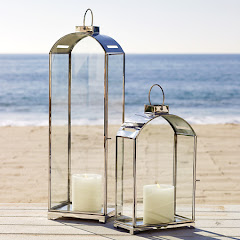Running a household is an expensive affair, but there are lots of things that you can do to minimize the cost. Here are the top seven:
1. Bundle Your Services
Have Internet, phone and cable service? Move all of your accounts to one provider, and you could save $20 or more per month. Check your mail for bundling offers or visit lowermybills.com to find out which company is offering the best service bundle in your area; then make the switch and save.
Five More Ways to Lower Your Phone Bill
13 More Ways to Save on Your Cell Phone Bill
Sponsored Links
Best 10 Work At Home Jobs
Here Are Proven Work At Home Jobs. Independently Reviewed. Scam Free.
Avoid-Work-At-Home-Scams.com
Reduce Your Electric Bill
Reduce Electric Bills 8%-25% Low Cost-Easy To Install-Financing
www.PowerSavingPay.com/lead.php
Free Coupons - Truly FREE
Hundreds of Free Coupons for Top Brands. Sign Up and Save Big $ Now!
FreeCoupons.EverSave.com/SaveNow
2. Cut Back on Extras
Do you really need caller ID ($6) and call waiting ($9)? How about the premium cable ($60) or satellite package ($55) that you subscribe to? Examine your list of monthly expenses, and determine what you can live without – short term or long term.
Cut Back on Extras
3. Clip Coupons and Shop Sales
Groceries can take a big bite out of a budget, but they don't have to take a big bite out of yours. To reign in your grocery spending, start clipping coupons and shopping the sales. Just how big of a savings can you expect? 15 percent is a reasonable expectation for a first time couponer, and with time that could increase to as much as 50 percent!
How to Coupon Effectively
Clever Couponing Strategies
View Sales Ads Online
The Best Time to Buy Everything
4. Slash Your Insurance Premiums
Insurance is important to have, but costly. Shop around for a better auto insurance rate, and you may just shave hundreds of dollars off of your current premium. Can't find a better rate? Talk to your current provider to see if there are discounts that you are missing out on. Do they offer a multi-line discount for customers with multiple policies? A good student discount? A good driver discount? For even more savings, consider increasing your deductible or canceling collision coverage on older vehicles. If you have homeowners or renters insurance, be sure to review those policies as well.
Lower Your Auto Insurance Premium
Lower Your Homeowner's Insurance Premium
5. Get Energy Smart
Do you dread opening your utility bills each month? If so, there's a lot that you can do to reduce your bill. Install a programmable thermostat, and set it to run less when no one is home; turn off lights when they aren't in use; wash your laundry in cold water; turn down the temperature on your hot water heater; only buy Energy Star appliances. Start looking around, and you'll find lots of ways to reduce your energy consumption and your energy bills.
44 Ways to Trim Your Electric Bill
35 Ways to Save on Your Water Bill
6. Seek Cheap Thrills
You don't have to spend a lot of money to have fun, so examine your entertainment spending; and see if there are places where you can make cuts. Could you rent movies instead of seeing them in the theatre? Enjoy free concerts instead of paid concerts? Check out books at the library instead of buying them? Go on a picnic instead of eating out? Challenge yourself to have more fun for less money – and see where you end up.
Free and Nearly-Free Kids' Events
Frugal Date Ideas
7. Pay Your Bills on Time
Are you in the habit of paying your bills late? If so, you're probably paying extra for the privilege. Start paying your bills on time, and say goodbye to late fees and rate hikes once and for all.
How to Set Up Online Bill Pay
Best Moves in a Bad Economy
Make the most of your money despite troubling financial times.
Read MoreSpend Less Resources
Painless Ways to Cut Your Spending
How to Break the Spending Habit
Develop a Monthly Spending Plan
Budgeting Basics
How to Create a Frugal Budget
How to Budget Using the Envelope System
Build-a-Budget Worksheet
Frugal Living Essentials
10 Ways to Start Living the Frugal Life
Frugal Living Worksheets
Organize Your Finances
Assinar:
Postar comentários (Atom)























.jpg)







Um comentário:
Energy vampires: Fact versus fiction
By Lori Bongiorno
It's well-known that most electronic devices in our homes are sucking up energy even while they are turned off. But for all the information out there, many questions remain. I got hundreds of reader questions after writing the post What's wasting energy in your home right now. Below are answers to the five most common inquiries:
Which electronic devices waste the most energy when they are turned off but still plugged in?
Set-top cable boxes and digital video recorders are some of the biggest energy hogs. Unfortunately, there's little consumers can do since television shows can't be taped if boxes are unplugged. It also typically takes a long time to reboot boxes.
However, some of the other major consumers of standby power are more easily dealt with: computers, multifunction printers, flat-screen TVs, DVDs, VCRs, CD players, power tools, and hand-held vacuums. The Lawrence Berkeley National Laboratory (LBNL) measured standby power for a long list of products.
While it's true each individual product draws relatively little standby power, the LBNL says that when added together, standby power can amount to 10% of residential energy use.
Why do electronic devices use energy when they are switched off?
Electronics consume standby power for one of two reasons, says Chris Kielich of the Department of Energy. They either have an adapter that will continue to draw electricity, or they have devices (such as clocks and touchpads) that draw power. Anything with a remote control will also draw standby power, she says, since the device needs to be able to detect the remote when it's pushed.
Does everything suck energy when it's plugged in and turned off?
No. If your coffeemaker or toaster doesn't have a clock, then it's probably not using standby power, says Kielich. Chances are your hair dryer and lamps (although they may have a power adapter for the dimmer) are not drawing standby power either, she says. Devices with a switch that physically breaks the circuit don't consume standby power.
Will switching things on and off shorten their life?
Probably not, says Kielich. You'd have to turn devices on and off thousands of times to shorten their lives. The real downside, she says, to unplugging electronics is that clocks and remotes will not work, and you do have to reset everything.
Can you ruin batteries by unplugging battery chargers and causing batteries to completely discharge?
It could be a possibility, says Kielich. Her advice: Don't let batteries get completely drained. But you don't need to have things like hand-held power vacuums and drills plugged into the charger when it's 100% charged, or even 50% charged.
Power Strip FAQs
Plugging electronics into a power strip and turning it off when you're not using it is a widely prescribed solution for curbing vampire power. Here are answers to common questions:
* Power strips draw energy when they are turned on, but not when they are switched off.
* Any decent power strip should have surge protection, according to Kielich. Flicking your power strip on and off will not create a power surge capable of damaging electronic devices. In fact, it will protect devices from other surges.
* Several readers were worried about the possibility of fires caused by plugging too many things in at once. If you plug in the allowed number of devices, then power strips are safe, says Kielich. Just don't plug your power strip into another power strip, or you run the risk of creating an overload.
Environmental journalist Lori Bongiorno shares green-living tips and product reviews with Yahoo! Green's users. Send Lori a question or suggestion for potential use in a future column. Her book, Green Greener Greenest: A Practical Guide to Making Eco-smart Choices a Part of Your Life is available on Yahoo! Shopping and Amazon.com.
Postar um comentário